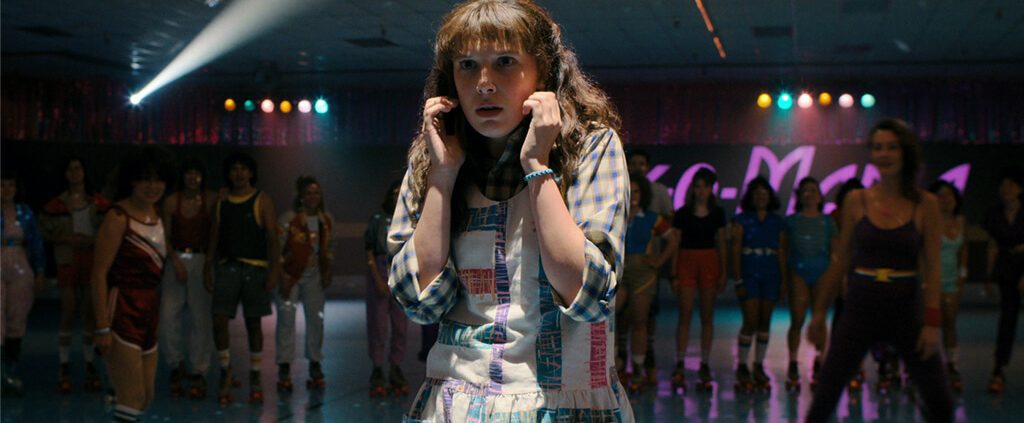Stranger Things 4 Vol. 1: When Retaliating Seems Like the Only Way
Screenshot taken from Netflix
“Blessed are the meek, for they will inherit the earth.” (Matthew 5:5)
I was bullied for the first time in my first year of high school. I was mocked by a group of classmates for a number of reasons—for the way I pronounced certain words, my weight, my meekness. It got to the point where even my best friend was given a cruel nickname by this group simply for associating with me.
I tried different tactics of avoiding the bullying, including laughing it off and even cheating on an exam with them just to get on their good sides. But one day, I cracked after a particularly vicious round of jeering and whacked one of the bullies across the back with one of my notebooks. The blow left a wound, and the horrified bully threatened to turn me in.
I remember responding with, “Go ahead and try. I’m an angel. Between you and me, let’s see whose story the teacher’s going to buy.” Days passed, and the bully never did report my retaliation. When the group stopped messing with me altogether, I realised that as much as the adults in my life always said violence wasn’t the answer, it was what had given me power over my bullies.
This was the memory that came to mind while I was watching Stranger Things 4 Vol. 1. The Netflix series, which first shot to popularity in 2016, covers the adventures of a group of kids in small town Hawkins, Indiana who are entangled in the world of the supernatural when the town is discovered to hold mysterious doorways to a monster-filled dimension.
In the current season, the kids are now teens entering their first year of high school, and the group has fractured due to loss, distance, and peer pressure. The powerful telekinetic Eleven, who has been the key to saving the world for the past three seasons, had lost her abilities following her battle with Big Bad the Mind Flayer. When season four begins, she is the odd girl out at a new school in a new city, having lost much of her support system after moving away from Hawkins.
We now see the once-superpowered hero mocked by classmates during a school presentation, and labelled a snitch when a teacher comes to her rescue. The situation comes to a head when Eleven’s boyfriend Mike visits her for spring break and her bullies set her up to be publicly humiliated.
Fighting fear with fear
As I watched Eleven being pushed around, I found myself hoping that the anger and helplessness would reawaken her powers and allow her to put her bullies in their place. I wanted her to make her tormentors fear her when they finally realise what she was really capable of. And even though her powers didn’t return, seeing her fight back and make her bully cry was a cathartic moment.
I’m probably not the only one who felt this way. We always want those who hurt us to get their just desserts, while we cheer the victim on, secretly hoping they’d reveal just how “powerful” they are. We see it even among Jesus’ disciples. When Samaritan villagers rejected Jesus, James and John reacted by wanting to “call down fire from heaven to destroy them” (Luke 9:53-54).
We have come to believe that power lies in being able to inspire fear in others, even though it is a mindset more typical of villains. In a perfect world, we reason, we could accept the power in meekness. But in the real world, it’s survival of the fittest.
The newest threat from the Upside Down, Vecna, lives by this philosophy as well. He was born as a human boy with telepathic and telekinetic powers similar to Eleven’s. But while Eleven used her abilities to protect others, for Vecna, true power was demonstrated in one’s ability to dominate and impose his will on others.
Bullies from the inside
It is said that many people who are bullied become bullies themselves. According to the International Bullying Prevention Association, bullying can often be learned behaviour, a response from a bullied person who refuses to be seen as weak any longer.
But even though Eleven was able to avenge herself, it was not a victory for her. In fact, her retaliation is met with shock and horror, not just by her bullies and random bystanders, but even by those who know and love her.
One of the most brutal effects of bullying is how the experience often lives rent-free within the victim’s mind for a long time. I know people who as adults still clearly remember their bullies from elementary school days, and still daydream about how they might confront these people. Bullying is an experience that can keep a person imprisoned mentally and emotionally long after the bully is gone from their lives.
When a person is bullied at a formative age, it can create core beliefs about themselves that lead to destructive behaviour. Insults like “you’re fat” can birth eating disorders; “freak” can make people believe they will never be worthy of acceptance or love, and so they isolate in dangerous ways. In this way, the bullied’s own mind carries on the bully’s work.
This is the core of Vecna’s modus operandi—he doesn’t attack his victims physically, but rather, breaks them from the inside. He uses the wounds, guilt and regrets of their past to cripple and eventually consume them. Unable to escape their own mental prisons, they are left vulnerable for Vecna to finish his terrible work.
Monsters and superheroes
“You speak of monsters, superheroes—that’s the stuff of myth and fairy tales… Only by facing all of ourselves—the good and the bad—can we become whole.” – Chapter 7
A question Eleven grapples with throughout the season is whether she is a superhero, as her friends see her, or a monster, as others view her. She finds the answer to this question as she journeys into her long-buried past in order to reclaim her powers.
Eleven is led to recall that as a young test subject in Hawkins Lab, she was considered “weak”, and the older test subjects bullied her to the extent that they threatened to kill her.
Masquerading as Eleven’s ally, Vecna encouraged her to unlock her powers through negative emotions. He tried to entice her to follow him by playing into the desire to be superior, to dominate, to be “free” of others’ control—essentially, to become a bully herself.
However, the sight of her worst bully being brutally murdered didn’t make Eleven happy; rather, she saw it for the evil that it was and resolved to oppose the villain and all he stood for. It was in that moment that she became a superhero, unleashing the full force of her powers in a bid to stop him from hurting others. The raw strength that flowed out of Eleven’s compassionate heart was what enabled her to overcome.
The power of bullying is broken when we choose to let God fight our battles for us, rejecting the belief that we need to be on top of the food chain in order to not be hurt. It is broken when we make the call to stop letting it influence what we do and who we become; when we choose to let go of hurts inflicted on us and move forward through the grace and healing of Jesus Christ. He understands the pain, rejection, and scorn of the very people He came to save (Isaiah 53:3).
We may not have superpowers to claim, but we have a Defender who has already overcome the world (John 16:33). And just as He was sustained by the Holy Spirit, we are too. As we bring our suffering to Him in prayer, we trust that He has already faced the ultimate bully—Satan—and emerged victorious. We keep our eyes on the Perfecter of our faith (Hebrews 12:2-3), who reigns over all and will protect us to the end.













Leave a Reply
Want to join the discussion?Feel free to contribute!